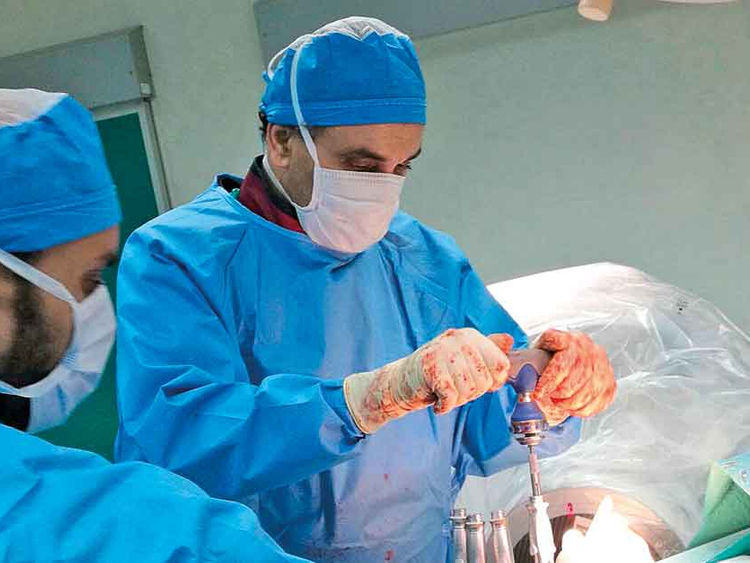For the first time in the UAE, doctors at Rashid Hospital successfully performed a corrective surgery for degenerative scoliosis in a woman in her 60s using a minimally invasive method.
The Arab national came to the hospital complaining of backache and leg pain due to degenerative scoliosis.
Degenerative scoliosis, which usually starts after the age of 50, is a side-to-side curvature of the spine caused by degeneration of the facet joints and intervertebral discs, which are the moving parts of the spine. This causes backache and excruciating sensations that shoot down the leg, commonly referred to as sciatica, which can make walking difficult or impossible.
“We conducted a two-stage surgery using a new technique called endoscopic assisted oblique lateral interbody fusion,” says Dr Najmedden Attabib, Consultant Neurosurgery and Spine Surgery at Rashid Hospital, who conducted the surgery along with the neurosurgical team at Rashid. “While this technique is evolving all over the world, it is the first time in the UAE that this method was used with endoscopy allowing for minimally invasive treatment.”
Dr Attabib explains that in the first phase, a small incision is made from the side of the belly and by working in an oblique angle, cages are inserted to correct the curve allowing the foramen to open up reliving the patient from the pain that was caused by the deformity squishing the nerves.
In the second stage, percutaneous pedicle screw insertion is done with minimal invasion so that the bones heal together. He says the alternative to this surgery would have been a much invasive surgery with a big incision in the back and front.
Such surgeries have a higher morbidity risk and cause more blood to be lost, and the hospital and healing process would have taken longer.
“The advantages of the surgery we conducted is that it is minimally invasive allowing the patient to heal faster,” says Dr Attabib. “Following the surgery, the patient was happy as the pain she suffered from was relieved and she was discharged shortly.”












